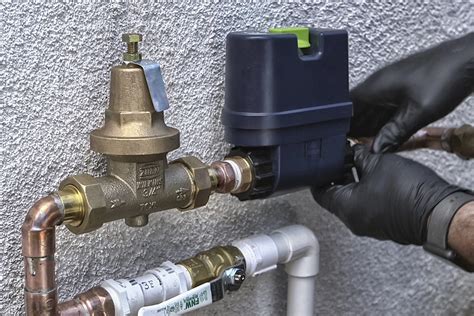As we continue to navigate the complexities of modern life, it's becoming increasingly clear that smart technology is revolutionizing the way we live and interact with our homes. One area that's often overlooked, but is ripe for innovation, is plumbing. Traditional plumbing systems can be inefficient, wasteful, and prone to leaks and damage. However, with the advent of smart plumbing technologies, homeowners can now enjoy greater convenience, savings, and peace of mind. In this article, we'll explore five smart plumbing technologies that are transforming the way we think about water management in our homes.
1. Smart Water Sensors

Smart water sensors are small, non-invasive devices that can be placed near water meters, pipes, or appliances to detect even the slightest changes in water pressure, flow rate, or temperature. These sensors can alert homeowners to potential issues, such as leaks, frozen pipes, or malfunctioning appliances, allowing for prompt action to be taken. Some smart water sensors can even detect the sound of running water, alerting homeowners to potential waste or unnoticed leaks.
Benefits of Smart Water Sensors
- Early detection of leaks and water damage
- Real-time monitoring of water usage and pressure
- Customizable alerts and notifications
- Compatibility with popular smart home systems
2. Smart Water Heaters

Traditional water heaters can be energy-hungry and inefficient, especially when not in use. Smart water heaters, on the other hand, use advanced sensors and algorithms to optimize energy consumption and provide hot water on demand. Some smart water heaters can even learn a homeowner's schedule and preferences to pre-heat water accordingly.
Benefits of Smart Water Heaters
- Energy efficiency and cost savings
- Customizable temperature and scheduling
- Remote monitoring and control
- Integration with popular smart home systems
3. Leak Detection Systems

Leak detection systems use a combination of sensors and machine learning algorithms to detect even the smallest leaks in a home's plumbing system. These systems can alert homeowners to potential issues, allowing for prompt action to be taken. Some leak detection systems can even pinpoint the exact location of the leak, making it easier for plumbers to diagnose and repair.
Benefits of Leak Detection Systems
- Early detection of leaks and water damage
- Real-time monitoring and alerts
- Customizable sensitivity and notification settings
- Integration with popular smart home systems
4. Smart Toilets

Smart toilets are equipped with advanced sensors and features that can help reduce water consumption, improve hygiene, and enhance the overall bathroom experience. Some smart toilets can detect when a user is approaching and automatically lift the lid, while others can analyze waste and provide personalized health insights.
Benefits of Smart Toilets
- Water efficiency and cost savings
- Improved hygiene and cleanliness
- Customizable features and settings
- Integration with popular smart home systems
5. Smart Faucets

Smart faucets use advanced sensors and algorithms to optimize water flow, temperature, and usage. Some smart faucets can detect when a user is washing their hands and automatically turn off the water when finished. Others can even detect the type of activity being performed, such as cooking or cleaning, and adjust the water flow accordingly.
Benefits of Smart Faucets
- Water efficiency and cost savings
- Customizable temperature and flow settings
- Integration with popular smart home systems
- Hands-free operation and convenience






As we continue to explore the world of smart plumbing technologies, it's clear that the benefits are numerous and the potential for innovation is vast. From smart water sensors to smart faucets, these technologies are revolutionizing the way we think about water management in our homes. By embracing these advancements, homeowners can enjoy greater convenience, savings, and peace of mind. So why not take the plunge and explore the world of smart plumbing technologies for yourself?
What is the most common type of leak in a home's plumbing system?
+The most common type of leak in a home's plumbing system is a toilet flapper leak, accounting for up to 200 gallons of water per day.
How can I detect a leak in my home's plumbing system?
+You can detect a leak in your home's plumbing system by checking your water meter, looking for signs of water damage, and using a leak detection system.
What are the benefits of using a smart water heater?
+The benefits of using a smart water heater include energy efficiency, cost savings, and customizable temperature and scheduling settings.
